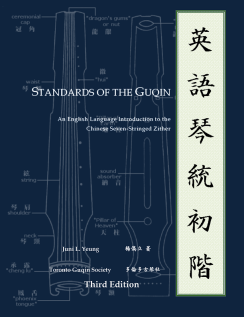
Promotion during Shanghai's Yokoso! Japan Fair
From 戊子年上海旅游节汉服展示活动报导(2008/9月21日)in Hanminzu.com:
“9月21日,上海旅游节活动的第二天,我们移师主会场–位于静安寺的久光百货,展示我们的汉文化。
在汉网上海团队之前,先有美少女战士与清 妖的COSPLAY表演(清 妖穿得非常恶心),随后,高雅庄重的”故宫”响起,大家身着各式汉服,缓缓上台,开始介绍汉服汉礼。主持人首先声明我们的团队不是COS,向观众说明了汉服才是中国人的传统服饰,而不是旗装马褂。接着讲起了汉服的起源,并且说到汉服对于日韩等周边国家服饰的影响,当主持人在台上讲到剃发易服,并且谴责这种暴行是反人类反文明的时候,横生变故,已经下台的清 妖一阵骚动,活动主办方突然拉过主持人,要求我们暂停活动。 大汉之风、秋波王等人赶过来与活动负责人交涉,一男子(负责人)声称刚才的宣讲内容牵扯到政治,并称刚接到公安要求叫停的电话。
对话内容如下:
某男子:你们这个活动不能继续了
大汉之风:为甚么?
某男子:你们的活动牵扯到政治了?
大汉之风:这怎么能算政治?这是历史常识。
某男子:这还不算政治阿,我们接到公安的电话了,你们不能继续了。
大汉之风:那我们昨天在淮海公园也是这么说的,也没问题啊。
秋波王:接下来就是汉服形制介绍和汉乐了。
某男子:就这样吧,对不起,不能继续了。
很遗憾,第二天的活动就这样被强行终止了,但我们并没有就此离开,而是依旧在台下,大大方方地向游客路人(其中有很多老外)宣传汉服、汉礼,以及我们的正史,也得到了许多善意的理解与支持!
附签到人员名单
酾酒临江、冰凉梦幻、炎汉苗裔、仕风、月之银狐、临水照花人、扬眉天下、真水优香、杨家四郎、朱雀太子、饶交州、秋波王、周鱼、桃之、泺兮、浮云微醉、步虚仙子(携同学)、冰海桑田、念奴娇、河马皇帝、默默白、大汉之风””
Translation:
“On September 21, the second day of events at Shanghai Travel Festival, we moved to the main venue: Jiuguang Department Store at Jing’an Temple, to give a presentation on Han culture.
In front of the Hanminzu.com Shanghai team, were a Sailor Moon and Qing-devil [sic] cosplay performance (the Qing-devils [sic] were utterly disgusting), and after that,
the elegant sounds of the song Gugong (Former Palace) flare up, and we ascend to the stage, wearing various styles of Hanfu. We began to introduce various styles of Hanfu and Han ritual,
and our host first gave a statement that the team is not cosplaying, but to explain to the audience that Hanfu is the true traditional clothing style of the Chinese people, and not Qipao (Robes of the Banner people) and Magua. Following was explanation of the origins of Hanfu, and gave mention on Hanfu’s influence to peripheral countries such as Japan and Korea. When the host explained the Queue Order, and denounced such an act as an anti-civil barbarism, an unexpected change occurred, and the Qing-devils [sic] downstage were causing a ruckus, and the venue host pulled our host over, requesting that we terminate our program immediately.
Dahanzhifeng (netname), Qiubowang (netname) and others rushed over to negotiate with the liason, who claimed that the speech just then involved sensitive political themes, and has received a telephone call from the Gong’an (Police) to pull the stops.
The conversation was as follows:
Man: Your events cannot continue.
Dahanzhifeng (DH): Why not?
Man: Your event has gotten political?
DH: How can this be political? This is common historical fact!
Man: How can this not be political, we’ve already received a call from the Police, you guys can’t go on.
DH: We said the same thing at the event in Huaihai Park yesterday, and we didn’t get any problems.
Qiubowang: And next, we will be introducing Han-style clothes’ standard forms and Han Chinese music.
Man: That’s all. Sorry, you cannot continue.
Regretfully, the events for the second day were forcefully terminated, but we did not just leave then, but continued to promote to passersby downstage on Hanfu and Han mannerisms, as well as our history, to which we have much concensus and support!
Members Present: (Translation skipped)
(Press Read more to read reflections by the event host, and comments by blog writer)
More












Recent Comments